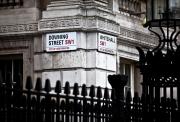Economic volatility, fuel and labour shortages, inflation, and ABBA on tour. No, this isn’t the 1970s, this is very much the present.
As we begin to understand the economic impact, it’s fair to say the Chancellor is not short of challenges. On Wednesday, 27 October 2021, Rishi Sunak unveiled his economic plan for Britain following the pandemic. This was a budget of big spending, taking the UK’s total spend to GDP to the highest level since the 1970s – around the time ABBA first released ‘Money, Money, Money’. Those numbers sound impressive, but the detail also shows that this budget’s increases are on the whole the start of bringing government spending back to 2010 levels after a decade of austerity.
However, the other side of the budget is ‘Gimme! Gimme! Gimme!’ as the Chancellor’s high spending also comes with the highest tax burden since the 1950s. According to the OBR, taking his March and October Budgets together the Chancellor has raised taxes more this year than in any single year since 1993. In fact, the average tax bill for households is £3,000 higher since 2019, according to The Resolution Foundation.
This matters because, despite a 6.6% rise in the National Living Wage to £9.50 an hour from next April, the economic pressures of rising inflation combined with the increased tax burden have led the IFS to conclude that the cost of living is forecast to rise at its fastest rate in 30 years.
As inflationary pressures persist, those who are on Universal Credit are disproportionately impacted. To compensate for the Government ending the temporary £20 a week uplift to Universal Credit, equating to £1000 a year, it has cut the ‘taper’ for workers on Universal Credit, meaning they get to keep more of their benefits as they work. But only 40% of those on Universal Credit are in work and only some of those will meet the earnings threshold, meaning the vast majority of recipients will be worse off with rising inflation and a cut in benefits.
This concerns us in particular at Debt Free London, as two thirds of our clients receive some form of state benefit as part of their income and, of those who do receive a state benefit, 58% are in receipt of Universal Credit. When you consider the economic status of our clients, 22% are medically unfit to work 22% and 1 in 5 (20%) are a jobseeker, meaning they will be hardest hit by the changes to Universal Credit.
In its post-budget analysis IFS Director Paul Johnson said, “The position for those out of work, particularly those without children, remains precarious indeed. There has been no increase in out of work benefits for the childless unemployed for half a century. Leaving those living standards dramatically trailing those of the working majority.”
In addition, of all the regions in England, London has the highest number of Universal Credit claimants at almost 1 million, meaning London is disproportionally impacted by this change. And that impact on living standards will only be worsened by continued rising costs across utilities, food, rent and other household essentials. Over the past year we’ve seen the number of problem debts our clients have with utility bills grow dramatically, with electricity almost doubling from 12% of clients to 21%, gas debt from 7% to 13%, and water debt up from 14% to 26% on the previous twelve months.
Despite these concerns, there are glimmers of hope as the estimated economic impact of the pandemic across a range of indicators is being revised down. The economy is expected to grow by 6.1% in 2021 (up 2.4%pts from pervious estimates); unemployment is expected to peak at 5.25%, down from an original forecast of 12%, and the post-pandemic economic scarring is at 2%, revised down from 3%.
But, as a country, we are not out of the woods yet; forecasts can change and the OBR itself highlighted that there remain substantial fiscal risks, including the pandemic, climate change and high government debt. We’re sure the Chancellor left the despatch box singing ‘Take a Chance On Me’, but let’s hope he doesn’t return in the Spring singing ‘S.O.S.’



